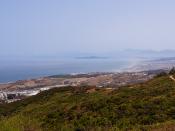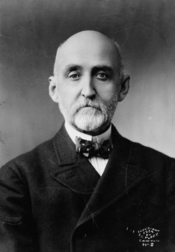THEME: Imperial Expansion1.Identify Alfred Thayer Mahan.
-naval officer and strategist -- published the book The Influence of Sea Power upon History, 1660-1783-Mahan connected naval expansion and empire to the problem of overproduction that the United States faced-wanted the United States to build a canal across Central American, allowing manufacturers on the Atlantic coast to compete with Europe for the markets of eastern Asia2.Why did the United States go to war with Spain in 1898?-Cuba was a colony of Spain, Cuban nationalists fought a long war of independence, financed by contributions from New York-Spain ended the war by promising reforms but the Panic of 1893 ruined its sugar export - Spain was in debt and did not keep its promise-rebellion resumed in 1895 and Spain retaliated by killing nearly 100,000 civilians-McKinley demanded that Spain withdraw from Cuba and Spain did so-McKinley sent Spain an ultimatum demanding independence for Cuba.
On April 11 he asked Congress for authorization to use force and Congress responded by passing a declaration of war.
3.Why did Anti-Imperialists criticize American foreign policy in the late-nineteenth and early-twentieth centuries?-opposed the annexation of new colonies and the approaching war with the Philippines-believed that the Filipinos had sought American help in good faith and were capable of governing themselves-argued that imperialism distracted attention from domestic problems and took tax money that could be spent at home4.Why did the U.S. go to war in the Philippines?-Dewey had given Aguinaldo his word that America desired no colonies - Aguinaldo continued to have faith in that word long after the occupation-an argument between American and Filipino sentries ended in gunfire - war began5.What was the Open Door policy?-John Hay was the primary creator of the Open Door Note - acknowledged the partitioning of China into spheres and it observed that so far none of the powers had closed its areas to the trade of other countries-note urged each of the powers to continue this policy and to declare publicly their intention to keep their concessions open to the trade of other powers-Britain and Japan agreed first, then Russia, France, and Germany didBibliography:Making A Nation: The United States and its Peopleby: Nick Cullather





